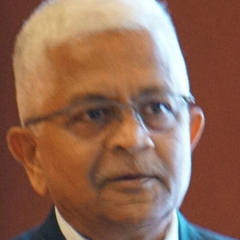Microbiologists and Training: A Crucial Quality Connection
Making a difference in Life Sciences for the human population, its environment and its sustainability depends on knowledge, diversity of perspectives, taking timely appropriate action(s) and understanding the dynamics of nature. Students of microbiology are no exception. There is an ongoing need for well-trained microbiology practitioners in the industry, bench-level and managers, including the fields of biopharmaceutical, pharmaceutical and cell and gene therapy.

Analytical technology has progressed in the industry with the availability of new tools for detecting, quantifying and identifying microbiological entities. Having a sound microbiological science background is a definitive requirement for using these microbiological analytical tools, including for building digital databases that assist in helpful and valuable decision-making.
A practitioner with a background of sound microbiological principles is only a first step. Developing skills, obtaining experience and gaining expertise in microbiological quality control is the next big step to providing a foundation for good decisions as well as continuous learning.
A successful microbiologist depends on many nonmicrobiological inputs that originate from coworkers and their environment. Inputs of specialist perspectives (e.g., manufacturing, facilities, cleaning, engineering) provide a plethora of knowledge and information that can be utilized for investigation, application and better decisions. Thus, teamwork and communication are critical and must be developed to be robust and trustworthy.
Dynamics and diversity of the microbiological world are an expectation. Yet, the capability to design and develop controls that are effective for preventing microbiological contamination comes from sound principles and experience. Developing the capability to master these competencies will ensure consistency and accuracy of decisions as well as accuracy of continuous learning. Competency development in microbiology originates from a robust training strategy and robust methods.
A training strategy in microbiological control should incorporate the diversity of the “students” and the numerous options available for training methods. Considering that the current workforce comprises multiple generations indicates that flexibility in training methods is key to successful outcomes. A range of individual learning styles translates into allowance for multiple types of training offerings, from individual one-to-one personal training to moderate-sized group training sessions. The types of training offerings, with anywhere from specific to more general content, should allow for the participant’s choice of learning, for example, virtual, classroom or self-instruction. A training continuum is desired that applies a strategy for developing skills experience and corresponding knowledge application, as well as robust oversight appropriate for the individual and an ongoing, timely performance for the organization. What is equally important is to ensure that the gained/existing knowledge be shared with the next generation via a well-defined knowledge management program. Both the individual(s) and the organization should define a strategy to meet their success requirements.
If you want to learn more about training microbiologists for competency, attend our presentation called Pharmaceutical Microbiologists: Training for Competency in the Next Decade and Beyond at the 2023 PDA Pharmaceutical Microbiology Conference in Washington, D.C., on October 2, 2023.



 Donald C. Singer is a Senior Microbiology Technical Consultant for Ecolab and a Fellow in the American Society for Quality. He was formerly a GSK Senior Fellow. Don is currently a member of the European Pharmacopeia Group 1 Microbiology Committee, a Certified GMP Professional and a Certified Specialist Microbiologist. Don was Chair of the USP General Chapters Microbiology Committee of Experts and was a member for 22 years. He is also an adjunct professor in the Biopharmaceutical Quality graduate program at the University of Maryland Baltimore County. Moreover, he was a co-author of the PDA
Donald C. Singer is a Senior Microbiology Technical Consultant for Ecolab and a Fellow in the American Society for Quality. He was formerly a GSK Senior Fellow. Don is currently a member of the European Pharmacopeia Group 1 Microbiology Committee, a Certified GMP Professional and a Certified Specialist Microbiologist. Don was Chair of the USP General Chapters Microbiology Committee of Experts and was a member for 22 years. He is also an adjunct professor in the Biopharmaceutical Quality graduate program at the University of Maryland Baltimore County. Moreover, he was a co-author of the PDA  Radha Tirumalai, PhD, is currently a Senior Principal Scientist at Merck Research Laboratories (MRL), Center for Excellence in Microbiology, providing above-site support to all MRL sites on all Microbiology related issues. He also interfaces with Merck Manufacturing Division internally and with external trade associations and regulatory agencies. He was in various roles at the USP from 2003-2022 and, most recently, as a Senior Principal Scientist-General Chapters in the Science Division. He was the liaison to the USP Expert Committee on Microbiology. He worked with the industry, regulatory agencies and other external science-based organizations to develop and revise General Chapters. In addition, Radha represented USP on PDA expert task forces and committees related to microbiology and sterility assurance from 2005-2022. He was also on the organizing committee of the PDA Global Microbiology Conference from 2006-2018, on the AAMI expert working groups related to microbiology, sterilization, sterility assurance and biocompatibility from 2004-2022, and on the editorial board of the U.S FDA’s Pharmaceutical Microbiology Manual from 2012-2022.
Radha Tirumalai, PhD, is currently a Senior Principal Scientist at Merck Research Laboratories (MRL), Center for Excellence in Microbiology, providing above-site support to all MRL sites on all Microbiology related issues. He also interfaces with Merck Manufacturing Division internally and with external trade associations and regulatory agencies. He was in various roles at the USP from 2003-2022 and, most recently, as a Senior Principal Scientist-General Chapters in the Science Division. He was the liaison to the USP Expert Committee on Microbiology. He worked with the industry, regulatory agencies and other external science-based organizations to develop and revise General Chapters. In addition, Radha represented USP on PDA expert task forces and committees related to microbiology and sterility assurance from 2005-2022. He was also on the organizing committee of the PDA Global Microbiology Conference from 2006-2018, on the AAMI expert working groups related to microbiology, sterilization, sterility assurance and biocompatibility from 2004-2022, and on the editorial board of the U.S FDA’s Pharmaceutical Microbiology Manual from 2012-2022.